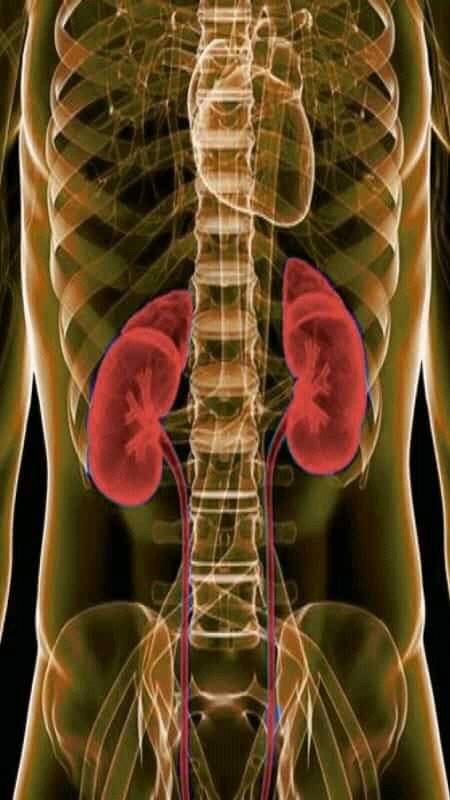Blood plays a vital role in carrying oxygen and nutrients to the cells in your body, as well as removing waste products. A shortage of blood, or anemia, can have a significant impact on your health and energy levels. Understanding the signs of blood shortage and knowing what to drink to boost your blood counts can be essential for maintaining good health.
### Signs of Blood Shortage (Anemia):
1. **Fatigue:** One of the most common signs of anemia is feeling unusually tired and fatigued. Anemia results in a reduced supply of oxygen to your cells, which can leave you feeling sluggish and exhausted even after a full night's sleep.
2. **Pale Skin:** Anemia can cause a noticeable paleness in your skin. Your skin may lose its healthy, rosy color, and you might appear unusually pale, especially in your face and nail beds.
3. **Shortness of Breath:** Anemia can lead to difficulty in catching your breath, even during light physical activities. This happens because there is a shortage of oxygen being transported to your body's tissues, including your muscles and lungs.
4. **Cold Hands and Feet:** Anemia can lead to poor circulation, causing your extremities to feel cold and often numb. Your hands and feet may feel icy to the touch.
5. **Weakness:** General weakness and a feeling of being physically weak can be a consequence of anemia. You may struggle to perform activities that were once easy for you.
6. **Dizziness or Lightheadedness:** Anemia can lead to feelings of dizziness or lightheadedness, especially when you stand up quickly. This is because your brain might not be getting enough oxygen.
7. **Headaches:** Anemia can result in persistent headaches, which are often due to the reduced flow of oxygen to your brain.
8. **Irregular Heartbeat:** In some cases, anemia can lead to an irregular or rapid heartbeat (palpitations). The heart is trying to pump more blood to compensate for the reduced oxygen-carrying capacity.
### Foods and Drinks to Boost Blood Counts:
If you suspect you have anemia or have been diagnosed with it, it's crucial to work with a healthcare provider to determine the underlying cause and appropriate treatment. While certain foods and drinks can help boost your blood counts, they should complement a well-balanced diet and medical advice. Here are some drinks that can aid in improving your blood counts:
1. **Iron-Rich Foods and Drinks:** Iron is a key component of hemoglobin, the protein in your red blood cells that carries oxygen. Consuming iron-rich foods and drinks, such as lean meats, poultry, fish, beans, and fortified cereals, can help increase your iron intake.
2. **Vitamin C:** Foods and drinks high in vitamin C can enhance iron absorption. Citrus fruits, strawberries, kiwi, and orange juice are excellent sources of vitamin C.
3. **Beetroot Juice:** Beetroot juice is known for its natural ability to increase hemoglobin levels. It's rich in iron, folic acid, and antioxidants. Drinking beetroot juice can be a tasty and nutritious way to boost your blood counts.
4. **Pomegranate Juice:** Pomegranate juice is another drink that has been associated with improved blood counts. It contains iron and other essential nutrients that can help increase hemoglobin levels.
5. **Green Smoothies:** A green smoothie made with leafy greens like spinach or kale, along with fruits, can provide a combination of iron, folate, and vitamin C to support healthy blood counts.
6. **Nettle Tea:** Nettle tea is believed to be beneficial for increasing iron levels. It's rich in iron, vitamin C, and other nutrients. However, it's essential to consult your healthcare provider before adding nettle tea to your diet, especially if you are on medication.
7. **Water:** Staying well-hydrated is crucial for overall health, including your blood. Water is necessary for the proper functioning of all bodily processes, including blood circulation. Dehydration can exacerbate the symptoms of anemia, so make sure to drink enough water daily.
8. **Avoid Excessive Caffeine and Alcohol:** Both caffeine and alcohol can inhibit iron absorption. While you don't need to eliminate them completely, it's a good idea to consume them in moderation, especially if you have anemia.
9. **Milk and Dairy Products:** Dairy products are sources of calcium, which can interfere with iron absorption. If you're focusing on increasing your iron intake, consider consuming dairy products at different times than iron-rich foods and drinks.
Remember, dietary changes take time to show results. If you suspect you have anemia or receive a diagnosis, work closely with your healthcare provider. They can recommend appropriate dietary modifications, supplements, or medical treatments to address your specific condition.
While certain foods and drinks can help boost your blood counts, it's essential to maintain a well-rounded diet with a variety of nutrients to support overall health. Anemia can have various underlying causes, and the most effective treatment will depend on the specific type and severity of anemia you have. Consulting with a healthcare professional is the best way to address your individual needs and develop a comprehensive treatment plan.



No comments yet
Be the first to share your thoughts!